How Plus Size Is Viewed Around The World
We know here in Britain and overseas in America the plus size market is booming, but how are plus size bodies viewed in other countries? From bloggers to models to body positive activists, the plus size revolution is going global and it seems we aren’t the only country ready for a body positive revolution. So fasten your seatbelts as we take you on a whistle stop tour of the world to see other countries attitude towards fuller figures.

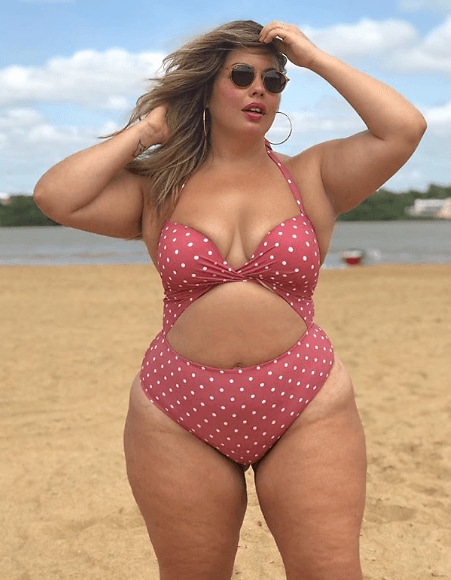
Asia
Korean beauty products came to our shores a few years ago and have proven to be big business and wildly popular, but this beauty obsessed country has an ugly side too.
Korea has one of the lowest obesity rates in the world, as well as a skinny obsessed diet culture that could be damaging to the country’s population. K-pop idols and celebrities alike openly discuss their weight and strict diet regimes on TV and in magazines (anything over 50kg/110lbs is deemed as overweight) and there is immense pressure to stay young, skinny and beautiful.
The plus size community in South Korea are severely underserved. With most clothing stores stocking the standard “free size” which is the equivalent to a UK size 8, maxi dresses and wide fit shoes are proving hard to come by for plus size customers. Attitudes towards anyone that doesn’t fit the ideal body type are less than savoury, but these women are broadening people’s minds when it comes to South Korean beauty standards.
Taylor Tak, otherwise known as Taylor T, is a Korean plus size model based in Australia and knows only too well how damaging Korean diet culture can be. At the age of 10, Taylor says she spent every summer and winter holiday in “diet schools” where she would eat less than 1000 calories a day and exercise for hours on end.
It was only when a photographer in London took pictures of her that she got into modelling. Back in Korea, Taylor says “In Korea, people think plus size model is a joke,” noting that most of the work she has done has been for overseas clients.
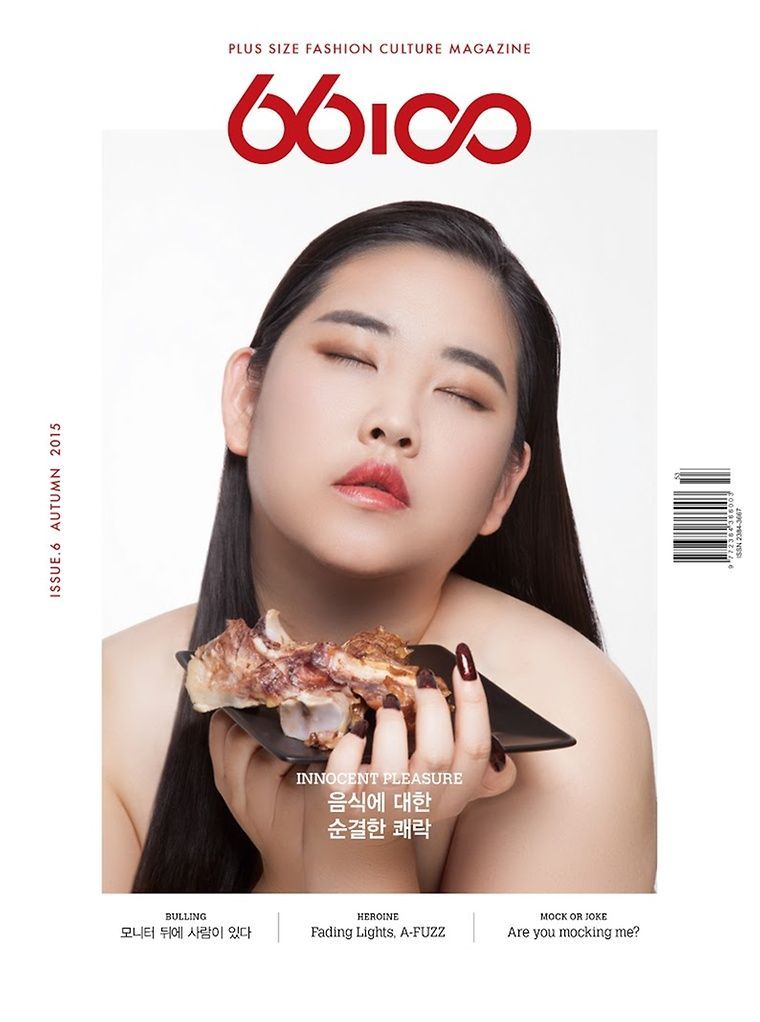
But times are changing, if Kim Gee Yang has anything to do with it! The plus size model and body positive activist founded 66100 magazine as a response to the lack of diverse body types in the Korean media. Kim says “I wanted to talk about beauty that’s unrelated to size, to reject the obsession with dieting and appearance and show that people should not be limited by their size. I also felt there was a need to talk about various social phenomena and news events.”
66100, which stands for the smallest clothing sizes that are considered “plus size” in Korea – 66 (UK 10) for women and 100 (UK 38) for men, is not only a magazine but a plus size online clothing store that shows the product on plus size models, both of which are a rarity in Korea.
Scarlett Hao is a plus size blogger based in New York that hails from China. Determined to break barriers and people’s perception of what a traditional Chinese woman should look like, Scarlett serves looks to her 163K strong following daily.
On traditional Chinese beauty standards, Scarlett says “As a Chinese woman, I grew up with the Asian beauty standard 'the more skinny the more beautiful you are.' That challenged me to identify my own beauty since I was a young girl. But that also pushed me to keep discovering my beauty from more angles and learning how to love myself.”
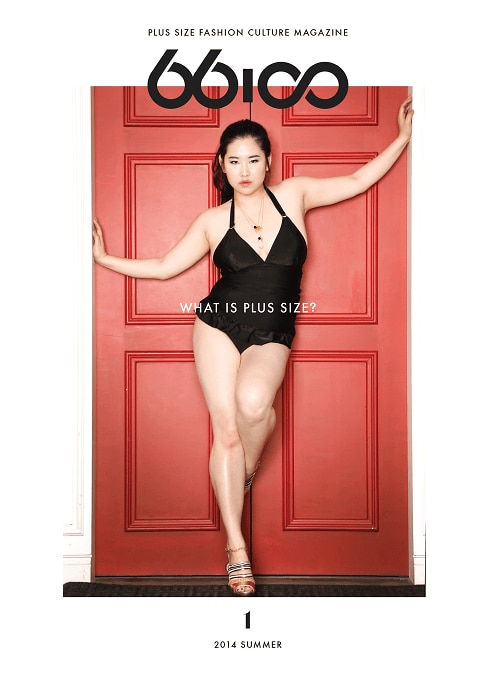
And speaking of the plus size community and lack of diversity, Scarlett adds “Nowadays, I try to use my own social power and create content to inspire the Asian community to value diverse kind of beauty. But obviously the plus size industry is still dominated by white and black women.
My Chinese culture made me stood up for the Asian women to be body positive and add a new voice to the global curvy/plus-size industry. I am happy to see more and more brands to realize they need to include Asian customers to their market demographics and willing to put efforts to rich out Asian target audiences. I would love to become the bridge to open more doors for both sides.”
Brazil
For a country that celebrates heavy hips, voluptuous figures and is host to the Rio carnival every year, plus size clothing is surprisingly hard to come by in Brazil. With a reported 35% of Brazilians classed as overweight as of 2018, the plus size market is still not being catered for it seems.
Despite the growth of the plus size market in Brazil, a 7.9% growth in revenue in the plus size sector in 2017 and an increase of 8.1% in profits, according to the Brazilian Plus Size Association (ABPS), there’s still some hesitation from the big retailers to invest in the plus size market.
Even though Brazil’s plus size clothing market seems to be falling short, their plus size models aren’t in short supply. Cleo Fernandes and Fluvia Lacerda are plus size models and natives of Brazil.
As well as plus size models, Brazil is host to their own Plus Size Fashion Week which takes place in Sao Paolo every year. Although Brazil is notably more diverse and forward thinking when it comes to plus size models and fashion, there is still a gap in the market when it comes to catering to plus size customers.
The Middle East
Being plus size and confident in your body because you choose to is one thing, but what if you have no choice in how your body looks? In Mauritania, a West African country of Southern Morocco, girls as young as 7 are sent away to camps to be brutally force fed a diet of upto 16,000 calories a day. Obesity is deemed desirable here, and women will go to any lengths to achieve it.
The beauty ideal in Mauritania holds women who are very overweight at the height of sexiness, and believe that finding a husband and keeping him happy is the ultimate goal. Sending their daughters away to these extreme eating camps is a rite of passage for mothers here and they feel it’s for their daughter’s own good.
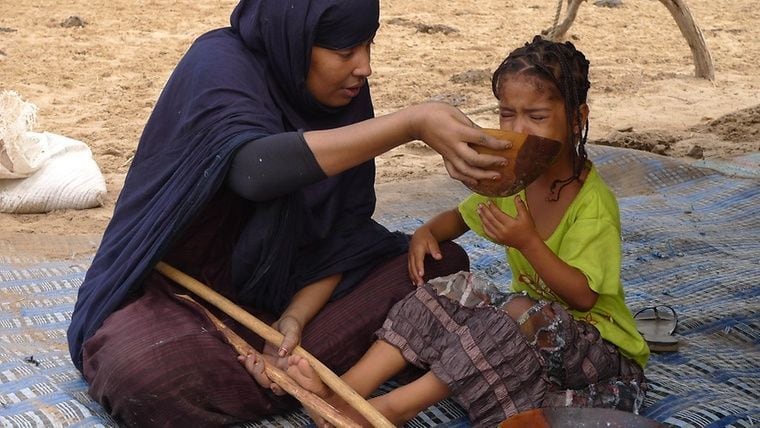
The origin of this tradition dates back centuries ago from the Moors, who were the Nomadic Muslims of Arabic. To them, having a well fed wife (like well fed livestock) was a symbol of a man’s wealth. Leblouh, or the act of force feeding, has never been outlawed here, although in 2003 a campaign was started by the government to fight child abuse and raise awareness of the risks of obesity.
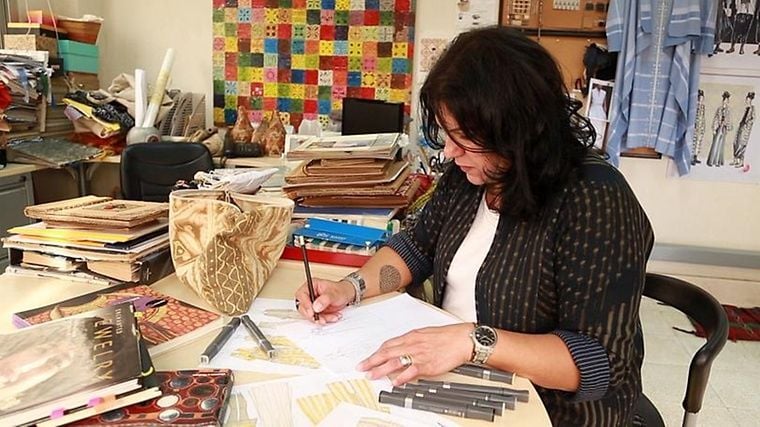
Over in Egypt, things are thankfully much different. Even though Egypt has one of the highest obesity rates in the world, plus size customers have been neglected by the retail market for many years. That is, until now. Designers have recognised a gap in the plus size market and are hoping that plus size fashion will become more and more mainstream over time.
Cairo high street clothing store Mix and Match believes women should wear clothes that are tailor made for their shape and size, including plus size dresses and plus size jumpsuits. The store’s designer Rola Hussein says “We try to focus on the details that will make a woman’s body look better, will make her feel more confident in herself, without really changing what she is.”
While it's interesting to see other countries take on the plus size movement, it's clear that more needs to be done to cater to plus size communities and customers.